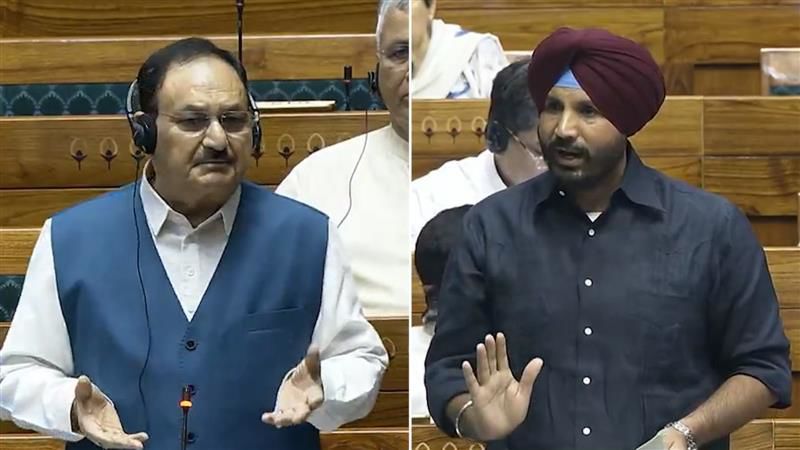
Chandigarh, July 26
As cancer cases in Punjab are on the rise, Punjab Congress MP Amarinder Singh Raja Warring on Friday raised the issue in Lok Sabha about the free-of-cost treatment to patients.
Warring said: "The government claims that India is the fastest growing economy in the world. If it is so, why cannot the government provide cancer treatment free of cost to patients rather than lowering the cost of medicines. When someone has cancer in the family, the entire family gets affected, so it is important that the government provide treatment free of cost rather than lowering the cost of medicines."
#BudgetSession2024
— SansadTV (@sansad_tv) July 26, 2024
Union Minister @JPNadda replies to the questions asked by member during #QuestionHour in #LokSabha regarding Affordable Prices of Cancer Drugs.@ombirlakota @LokSabhaSectt #Budget2024@MoHFW_INDIA pic.twitter.com/WJLpkNWXUo
Union Health Minister JP Nadda -- responding to Warring, said the government had made all efforts to ensure that affordable and accessible treatment is available to the patients.
He said, "The number of cancer cases is going up, it is increasing by almost 2.5 per cent every year," adding, "In men, cases of oral and lung cancer are on the up while more women are getting breast cancer."
More than 15.5 lakh cancer cases are being registered every year, said Nadda.
"There is a list of 131 essential cancer medicines, which are in Schedule 1, (that) are monitored and (their) pricing is decided by the government. These are the commonly used medicines," Nadda said.
He said patients cumulatively saved around Rs 294 crore due to this price control.
"There are 28 combinations, which are not in this list but the NPPA (National Pharmaceutical Pricing Authority) and the government have controlled their pricing as well," he said.
"We have tried to make cancer drugs affordable," he added.
In Punjab, maximum cancer patients are women with the breast and cervix uteri being the most common, while in men the most prevalent is oesophagus (food pipe) cancer that is due to alcohol consumption and fat.
As per the data with the Indian Council of Medical Research (National Centre for Diseases informatics and Research, Bengaluru), the projected incidents of cancer for 2025 in Punjab are 19,991 in males and 23,205 in females totalling 43,196 cases.